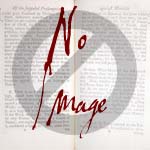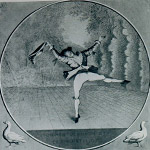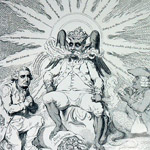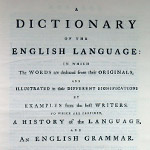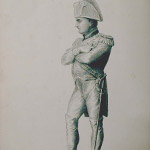 |
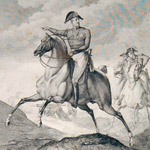 |
Sir Arthur Wellesley, 1st Duke of Wellington, and Napoleon Bonaparte were born in 1769, one in Ireland; the other in Corsica. It was the Peninsular War that confirmed Wellington's military reputation, and in March 1815, he was made commander-in-chief of the British forces, assembling an allied army to defeat Napoleon. Aiding the successful recapture of the city of Toulon advanced Napoleon through the ranks to First Consul and then Emperor of France (1804). The Battle of Waterloo (18 June 1815) signalled the end of an era. 'The Iron Duke' was lauded through the streets of London; Napoleon ended his days in exile on St Helena. |
